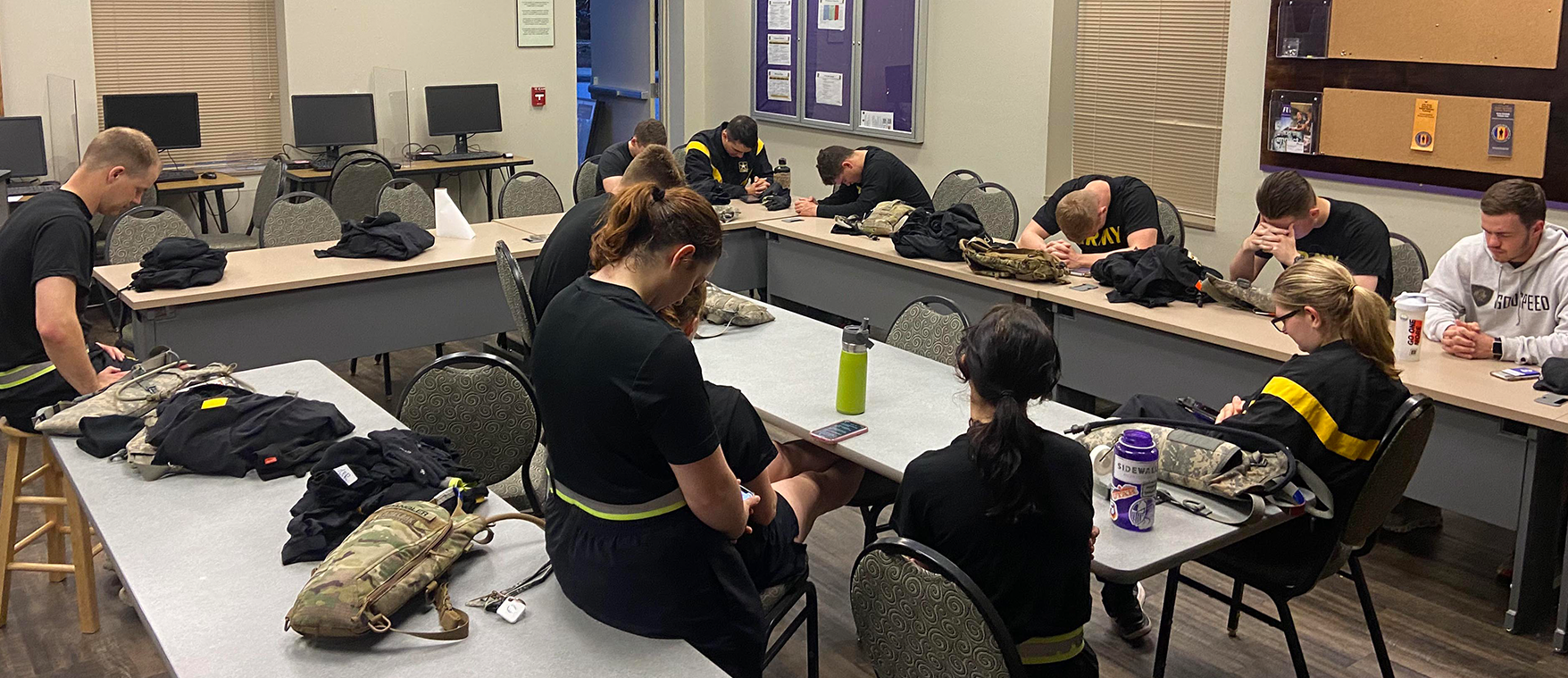9: Engaging in Prayer
IN THIS CHAPTER
Prayer is personal and corporate, it is spontaneous and intentional, and it changes us as we lay concerns, griefs, praises, thanks, and supplications before our God who is over all.
Download the Handbook
Get a PDF of the entire OCF Handbook, including all chapters and appendices.
SPONTANEOUS AND HABITUAL
Prayer is a regular part of a believer’s daily life. What a privilege that the God of the universe invites us to come before Him in worship, confession, and supplication. Prayer is more than brief, spontaneous, and present-moment focused prayer…it is also habitual and persistent worship of God. You can use the Lord’s Prayer (Matthew 6:9-13; Luke 11:2-4) as an outline to walk through daily prayer, or maybe use an acronym such as ACTS (adoration, confession, thanksgiving, supplication) to guide a time of prayer.
The methodology does not matter as much as learning to develop prayer as a time of worship, adoration, thanksgiving, confession, repentance, and petition. Like good radio discipline, prayer requires us to unkey (release) the mic switch, allowing times of silence for us to be in receive mode.
JESUS’ EXAMPLE
During His days on earth, Jesus taught His disciples to abide in Him (John 15:1-11). He is the vine, we are the branches, and in that relationship we meet and spend time with Him. Jesus did His Father’s will while on earth, and Luke makes it clear that Jesus made prayer a habitual part of His life (Luke 5:16, 6:12, 9:28, 11:1, 22:44). May we also be found in regular and persistent prayer. It takes time to build a prayer habit, so ask God to develop in you a spiritual discipline of prayer—don’t be discouraged if there are ups and downs in that growth.
LOVE FOR OTHERS
One way to grow in love for others is by spending time praying for them. Pray for those in authority over us (1 Timothy 2:1-2), for enemies and persecutors (Matthew 5:44, Luke 6:28), for Christian laborers in the field (2 Corinthians 1:11; Colossians 4:3), for the suffering and sick (James 5:13-16), and for those brothers and sisters we know are struggling with sin (1 John 5:16). Often we are the ones most changed through time in prayer.
We end up with softened hearts that are grateful for God’s love and grace. We desire to see God work in the lives of those who visibly oppose Him. Paul declares that it is God Himself who grants repentance leading opponents to escape the devil’s snare (2 Timothy 2:25-26). Prayer trains us in love of God and love of neighbor.
Prayer leads us to submit our will to God’s directing hand (Proverbs 16:9). The planning process for starting a fellowship or looking to future changes begins with prayer. OCF calls this Pray-Discover-Obey (the next chapter). Without prayer, we risk asking God to bless our plans rather than asking God to direct our steps. Psalm 127:1-2 says, “Unless the Lord builds the house, those who build it labor in vain. Unless the Lord watches over the city, the watchman stays awake in vain. It is in vain that you rise up early and go late to rest, eating the bread of anxious toil; for He gives to His beloved sleep.”
Start the day in prayer, then try to stay in an attitude of persistent prayer as you serve God in your work, rest, and recreation.











